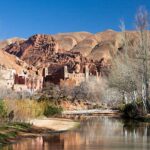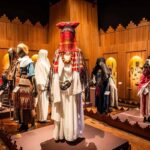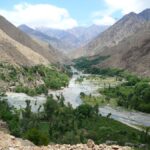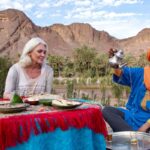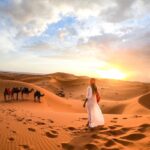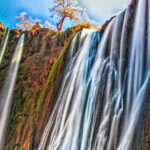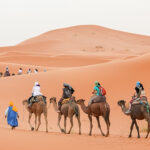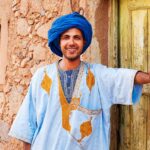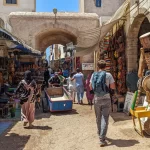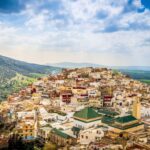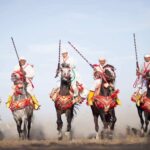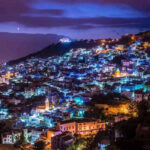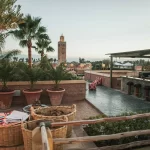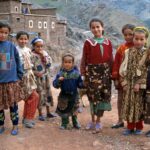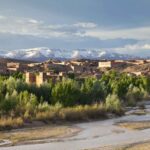The Greatest Mountain Range of North Africa The Atlas Mountains, also known as the High Atlas, hold the distinction of being the most extensive mountain range in North Africa. Their grandeur and diverse landscapes attract travelers from across the globe. Stretching across Morocco, Algeria, and Tunisia, these mountains offer a fascinating blend of nature’s beauty and rich cultural heritage.
The Atlas Mountains are predominantly inhabited by the Berbers, indigenous people with a rich and authentic culture. The Berbers have occupied these mountains for centuries, preserving their traditions, customs, and way of life, even amidst modern influences. Exploring the Atlas Mountains provides an extraordinary opportunity to immerse oneself in the genuine Berber lifestyle and witness their time-honored practices.
Table of contents
Exploring the Atlas Mountains
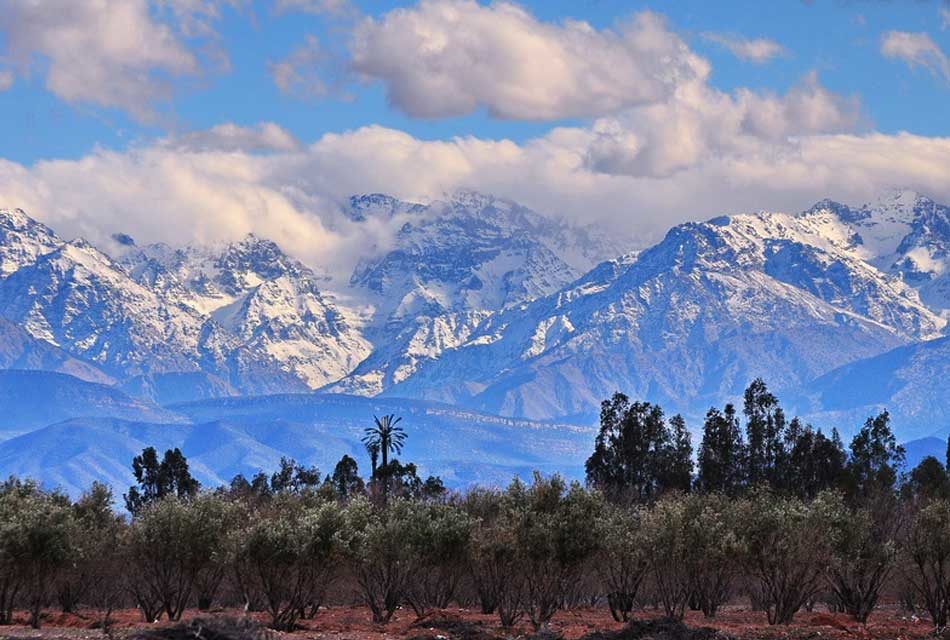
Snow-Capped Peaks and Stunning Views
The Atlas Mountains boast majestic snow-capped peaks, especially during winter, creating a mesmerizing sight against the clear blue sky. From various vantage points, such as big riads and hotels, travelers can marvel at the beauty of the mighty range. The breathtaking views and serene landscapes make the Mountains a paradise for nature enthusiasts and photographers.
Trekkers’ Den and Conquering Jebel Toubkal
The Atlas Mountains have earned a reputation as a trekkers’ den, attracting adventurers year-round. Among the many peaks in the range, Jebel Toubkal stands as the highest at around 4,170 meters. Climbing this peak is a cherished challenge for many, but it requires professional expertise and experience due to its steepness and the limited availability of oxygen at the summit.
Unwinding from City Life and Experiencing Raw Moroccan Culture
Nestled far away from the hustle and bustle of city life, the Mountains offer a refreshing escape into nature’s embrace. While Marrakech lies beneath the foothills of the Atlas Mountains, the atmosphere in this mountainous region is entirely different, providing a peaceful retreat from the fast-paced urban lifestyle. Here, visitors can experience the raw and authentic culture of Morocco, immersing themselves in the traditional practices and warm hospitality of the Berber communities. To enhance your Moroccan adventure, consider adding a day trip from Marrakech to the Atlas Mountains, where you can explore the stunning landscapes, hike through picturesque trails, and gain deeper insights into the unique way of life of the local people.
Planning Your trek
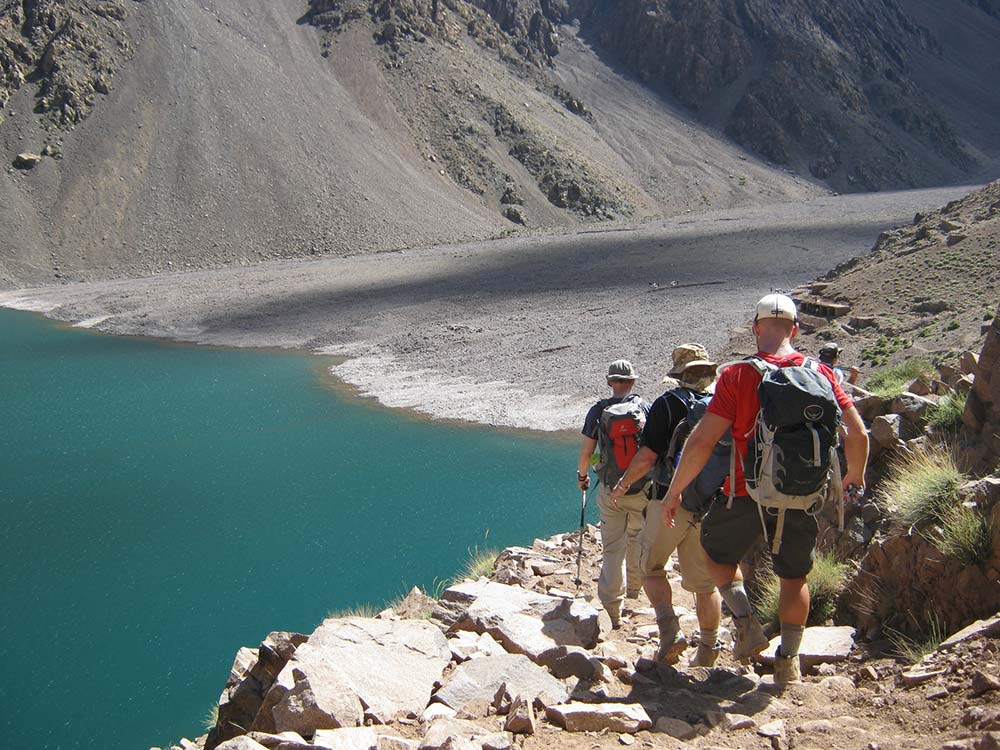
Hiring a Guide for Exploring Atlas Mountain Peaks and Berber villages
Exploring the Atlas Mountains can be a rewarding yet challenging experience, especially for those unfamiliar with the terrain and local customs. Hiring a knowledgeable guide is highly recommended for trekking to other peaks and discovering the quaint hamlets scattered across the region. A guide ensures your safety, offers valuable insights into the culture, and takes you through off-the-beaten-path routes for a more enriching adventure.
Trustworthy Travel Operators and Tour Booking
To make the most of your Atlas Mountains trekking experience, it’s essential to book your tour with a trustworthy travel operator. Reputable local operators have a deep understanding of the region, its hidden gems, and can curate an itinerary that aligns with your preferences and interests. Booking in advance ensures a seamless trip and allows you to secure the services of experienced guides and other necessary arrangements.
Hidden Valleys and Picturesque Towns
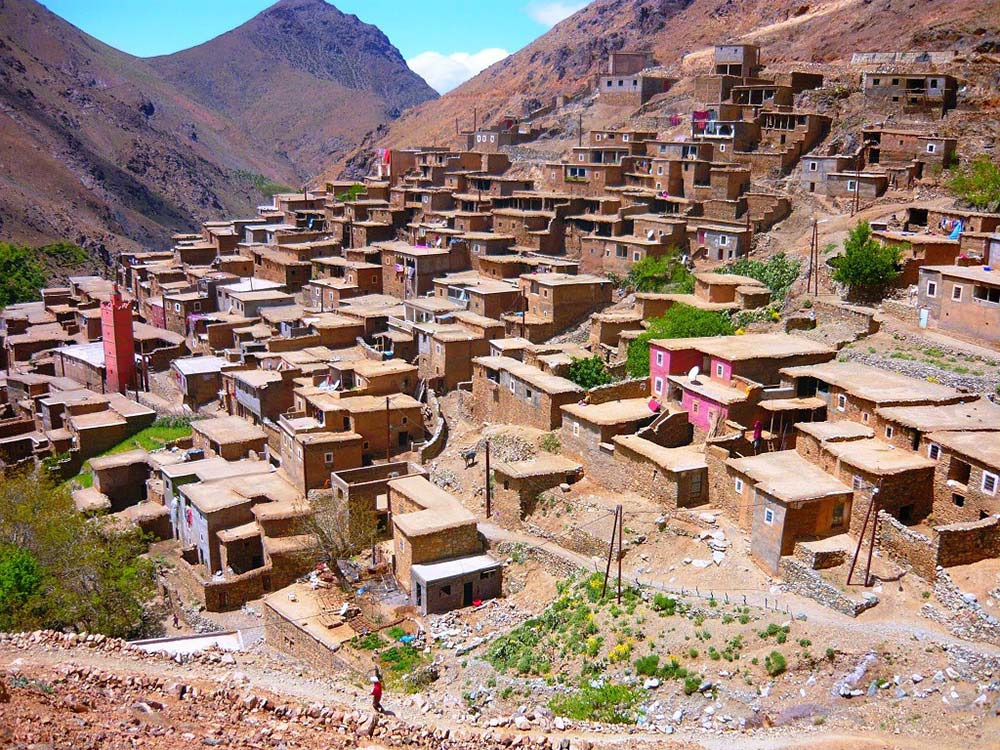
Ourika Valley:
A Picnic Paradise Located just 60 km away from Mount Toubkal, the Ourika Valley is a picturesque destination perfect for a relaxing picnic with family and friends. The valley’s lush greenery, vibrant flora, and refreshing waterfalls provide an idyllic setting to unwind amidst nature’s beauty.
Agoundis Valley:
Off the Beaten Path Adventure While not as popular as Imlil or Ourika, Agoundis Valley is a hidden gem that offers an adventurous escape for intrepid travelers. Accessible from the east of Ijoukak, this valley presents an alternative route to reach the refuge camp of Toubkal. However, this path requires 30 to 40 hours of hiking, making it ideal for those seeking a thrilling and challenging experience.
Amizmiz:
Immersing in Berber Culture Amizmiz is a vibrant valley where Berbers from the Atlas Mountains gather every Tuesday to trade their goods, including cattle, sheep, cows, and traditional clothing. Visiting Amizmiz provides a unique opportunity to immerse oneself in the authentic Berber culture and observe their age-old trading practices. While not a popular tourist destination, this valley offers an unfiltered glimpse into the traditional way of life.
Ait Zitoun and Lalla Takerkoust:
Bases for Trekking Ait Zitoun serves as an excellent base for trekkers, providing opportunities to arrange mules and necessary supplies for your mountain adventures. Just 23 km north of northeast Amizmiz lies Lalla Takerkoust, an excellent alternative base for trekking. The breathtaking views of Lalla Takerkoust Lake from the surrounding mountains make this area a must-visit for nature enthusiasts.
Azzaden Valley:
A Tranquil Escape For travelers seeking a quieter experience amidst the mountains, Azzaden Valley, located south of Imlil, offers a serene escape. Accessible by a 5 to 6-hour walk from Imlil, this valley provides a peaceful retreat for those yearning to connect with nature and relish the solitude.
The Inhabitants of the Atlas Mountains
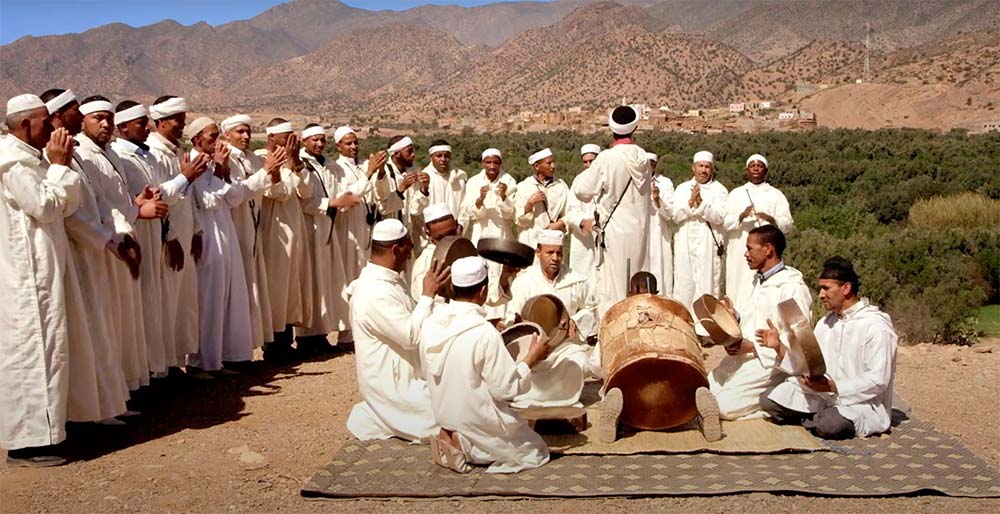
The Ancient Berbers and Their Unique Culture
The Atlas Mountains have been home to the Berbers for centuries, and their enduring culture and customs continue to thrive in this region. The Berbers hold a deep connection with their land and possess a rich oral tradition that passes down their history, traditions, and legends from one generation to the next.
Traditional Ahouache Dance and Gender Roles
One of the fascinating aspects of Berber culture is the Ahouache dance, a traditional group dance in which both men and women participate. This dance is a celebration of their cultural heritage and is often performed during important events and festivals. Additionally, gender roles in the Berber society reflect a unique balance, with women actively participating in herding and grazing goats and sheep, while men are responsible for irrigation, craftwork, and trading.
Wildlife of the High Atlas Mountains
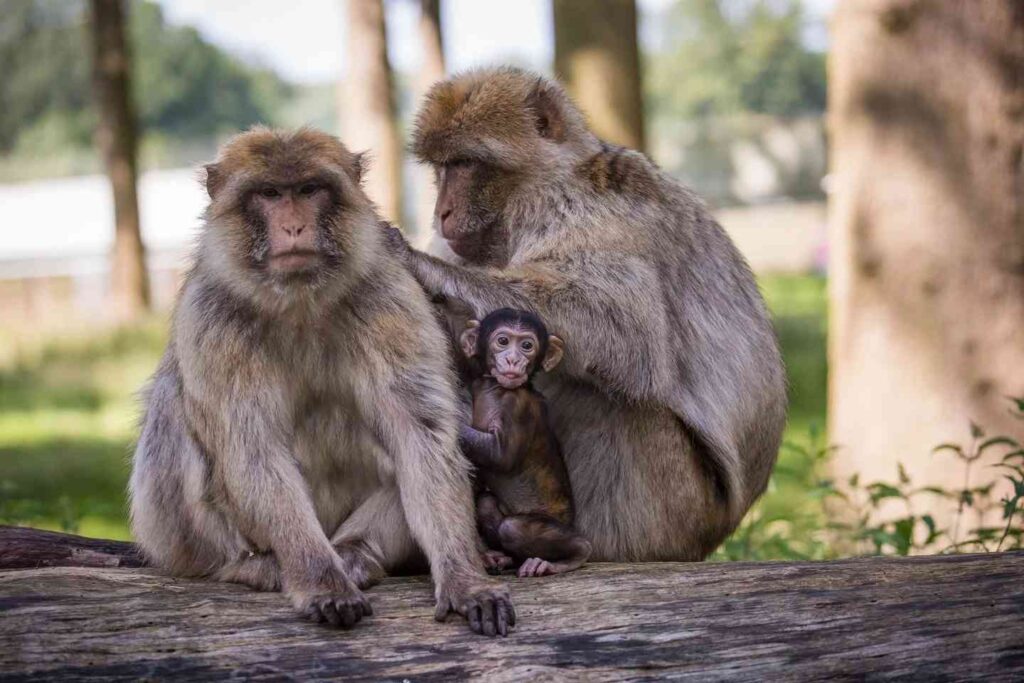
Flora and Fauna
Along the Slopes The Atlas Mountains offer a diverse range of flora and fauna, with different species adapting to the varying altitudes and climates along the slopes. Visitors can spot unique plants such as blue tussock grass, Erinacea anthyllis (hedgehog broom), and various wildflowers. The rugged terrain and rocky walls provide habitats for fascinating creatures like North African tods, Moorish geckos, mantises, running squirrels, and elephant shrews.
Rare Species:
Barbary Macaques, Barbary Leopards, and More The High Atlas Mountains are home to several rare and endangered species. The Barbary Macaques, also known as Barbary apes, are a significant highlight in the region. These unique monkeys, taller than typical monkeys, with pink faces and large tails, are found predominantly in Algerian and Moroccan territories. The presence of Barbary Macaques in the Atlas Mountains adds to the region’s allure and provides an opportunity for wildlife enthusiasts to observe these fascinating creatures in their natural habitat.
While snow leopards are not found in the High Atlas Mountains, the elusive Barbary leopard, a rare subspecies of North African leopards, roams these mountainous regions of Algeria and Morocco. The Barbary leopard’s sighting is a remarkable event for those fortunate enough to catch a glimpse of this majestic feline.
Another rare species that can be spotted in the Atlas Mountains is the Barbary sheep, also known as Arui or aoudad. This hardy creature can survive on grass and bushes, obtaining its water needs from its diet, but will readily drink if water is available nearby. Observing these magnificent sheep in their natural habitat is a memorable experience for any wildlife enthusiast.
The Cuvier’s gazelle, a subspecies of antelope, also finds its home in the High Atlas Mountains, specifically in Algeria, Tunisia, and Morocco. Known for its dark body color, the Cuvier’s gazelle holds cultural significance as a symbol of beauty in Arabic culture. Unfortunately, this graceful creature is listed as an endangered species due to the impact of mass hunting, and only around 1800 individuals remain in the world.
Best Trips to Consider
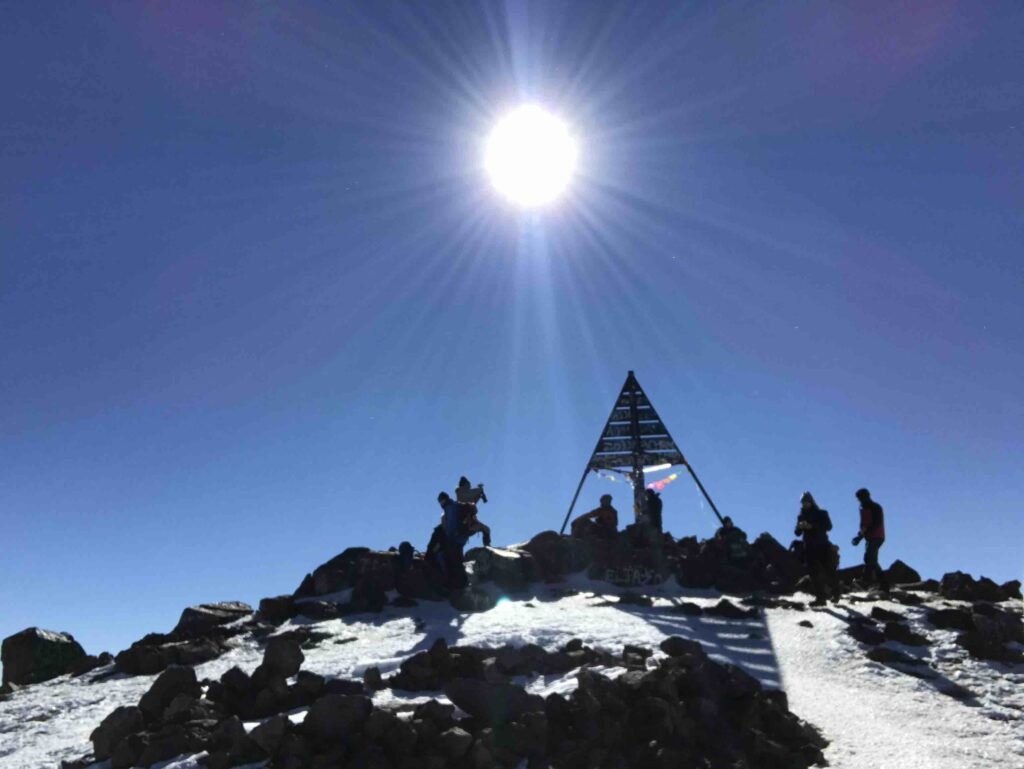
Mount Toubkal Trekking:
Conquering the Highest Peak Mount Toubkal stands as the ultimate challenge for trekkers, beckoning adventurous souls to conquer its summit. The trek to the highest peak in the Atlas Mountains offers a unique and rewarding experience, providing trekkers with an opportunity to witness the Berber life on the rocky slopes and marvel at the incredible mud houses precariously positioned at a 45-degree angle. Climbing Mount Toubkal generally takes about three days, and whether you are an experienced trekker or a novice, it is advisable to trek with local guides who are familiar with the routes and safety precautions. Locals possess invaluable knowledge of the region, ensuring that trekkers have a safe and enjoyable journey to the summit. The route from Mizane Valley to the village of Aroumd is a popular and straightforward path for reaching the peak of Toubkal.
Before attempting the challenging 2 days Mount Toubkal trek, it is wise to gain some experience by taking a Berber villages moderate trek, exploring valleys such as the Valley of Asni, Mizane Valley, Tacheddirt, and Azadane Valley. These trails serve as excellent training grounds for new trekkers, allowing them to acclimate to the mountainous terrain and conditions.
Tichka Plateau Trekking:
Exploring Lesser-Traveled Routes For travelers seeking a less-trodden path, the Tichka Plateau trek offers a rewarding alternative to Mount Toubkal. This route takes trekkers through the vast planes and picturesque Berber villages that are rarely explored by tourists. Trekking across the Tichka Plateau provides an authentic experience of the local lifestyle, and visitors may find themselves invited to share meals or even spend a night in a Berber home, as hotels are scarce in this area. Packing essential hygiene supplies, such as hand sanitizers, towels, and soaps, is advisable, as sanitation facilities in the villages may be basic. Travelers will likely enjoy traditional Berber hospitality, with mint tea and Tagine being offered as a warm welcome. The best time to trek the Tichka Plateau is during spring, when the fragrant aroma of wildflowers fills the air, enhancing the trekking experience.
Final Tips for a Rewarding Experience
Booking in Advance for a Smooth Trip
As the Atlas Mountains continue to grow in popularity among tourists, it is essential to book your tour in advance. This ensures you secure the services of experienced guides and avoid any last-minute inconveniences during peak travel seasons.
Choosing Local Tour Operators for Authenticity
To experience the authentic charm of the Atlas Mountains and gain insight into the local culture, it is recommended to choose locally operated tour operators. Local operators have an in-depth understanding of the region, its people, and their customs, ensuring you receive an authentic and enriching experience during your journey.
Packing Essentials and Gift-Giving to Locals
Before embarking on your Atlas Mountains adventure, consider the weather conditions and pack accordingly. Local guides can provide valuable insights into essential items to carry, ensuring your comfort and safety during the trek. Additionally, as a gesture of appreciation for the warm hospitality offered by the Berbers, consider bringing small gifts, such as souvenirs from your homeland, to share with your hosts. These gifts hold significant meaning and reflect the cultural exchange between visitors and locals.

The Atlas Mountains are a treasure trove of natural wonders, cultural heritage, and captivating wildlife. Exploring this awe-inspiring region, with its snow-capped peaks, charming villages, and warm-hearted Berber communities, is a journey of a lifetime. Whether you are a trekking enthusiast seeking the thrill of conquering Mount Toubkal during a challenging 3-day trek or a traveler eager to immerse yourself in authentic Berber culture, the Atlas Mountains offer an unforgettable experience that will leave an indelible mark on your heart and soul. Embrace the beauty, adventure, and hospitality of the Atlas Mountains and create memories that will last a lifetime.






